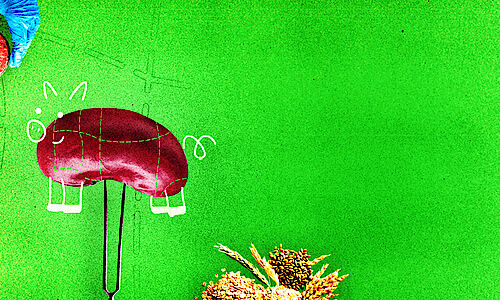News & Academies' activities
European Academies inform MEPs on GMO legislation
EASAC position on GMOs
In July 2014, after four years' deliberation and negotiation among member states, the Council adopted its first-reading position on a draft directive granting member states more flexibility to decide whether or not they wish to cultivate genetically modified organisms (GMOs) on their territory.
This proposal has been carefully considered so that countries that do not want to grow GM crops are not forced to accommodate the growing of GM crops, but also so these countries do not, among other things, hold up the progress of world-leading European research that seeks to create more beneficial crops to address nutritional and environmental objectives.
The amendments to this proposal put forward by the ENVI committee in September, to be voted on 5th November, would reverse the substance of the Council's proposals, thus ending their acceptability to member states.
ENVI's amendments would return Europe to the current deadlock which is creating an exodus of leading researchers and severely limiting innovative public sector research.
EASAC is sending this message to remind MEPs of the important and pressing context of that research.
Ensuring food security
Agriculture worldwide faces major challenges in delivering food and nutrition security at a time of increasing pressures from population growth, climate change, social and economic inequity and instability, and the continuing need to avoid further loss in ecosystem biodiversity.
The European Union is not immune from the problems - we must do more to establish innovation in agriculture, to satisfy a greater proportion of domestic demands for food, feed and the other products of the bioeconomy while, at the same time, contributing research and innovation to help resolve the global challenges.
Tackling the problems requires the deployment of all available approaches, traditional and novel, building on existing achievements for good agronomical practice. The biosciences can play a very significant role in the sustainable intensification of agriculture and EASAC has conducted several projects exploring how to make better use of plant genetic resources and the applications of biotechnology.
Compared with other regions of the world, the EU has fallen behind in its adoption of crop plant genetic modification and one of the reasons for this has been the time-consuming and expensive regulatory framework, compounded by politicisation of decision-making by Member States. Many in the scientific community are concerned that this situation will worsen.
EASAC's published work on agricultural innovation covers in detail issues for efficient and diversified land use, R&D, regulation (where we make the case for regulating the product, not the technology), and the vital importance of integrating all approaches, based on best science, taking account of the evidence available worldwide.
Obstacles to innovation
If the obstacles to EU agricultural innovation are not reduced, there will be increasingly worrying consequences for:
- The research community - declining commitment to fundamental plant science and lack of provision for future skills.
- The diversity of the private sector - discouraging open innovation, smaller companies and the applications of academic research.
- Future technology development - failing to capitalise on newer breeding techniques now coming into range.
- The bioeconomy - failing to develop new applications, for example for human health and the production of green chemicals.
- Facing major environmental challenges - for example those associated with climate change and shifting pest and pathogen populations.
- Developing countries - who are, in turn, discouraged in their own research and innovation by their perception of attitudes in the EU and concerns about their export markets.
EASAC recognises that many of the issues are controversial and that it is a responsibility of the scientific community to articulate clearly the consequences of research findings and the opportunities for innovation. There is a need to raise public and political awareness of the scientific, environmental, economic and strategic issues, to help support better informed individual choices, political debate and EU priority-setting.
On 11 November 2014, the Environment Committee of the European Parliament voted in favour of significant changes to the proposal of the Council of Ministers. The Parliament, the European Commission, and the Council of Ministers have now entered negotiations to settle on a joint version of the text, which they aim to agree on before the end of the year.
We welcome opportunities to engage with parliamentarians on these matters that are of vital importance to us all.
Further information
An in-depth analysis of these issues can be found in EASAC's reports "<link http: www.easac.eu home reports-and-statements detail-view article planting-the.html internal link in current>Planting the Future" (2013) and "<link http: www.easac.eu home reports-and-statements detail-view article risks-to-pla.html external-link-new-window external link in new>Risks to Plant Health" (2014).
Download EASAC position on GMOs <link fileadmin docs easac_gm_2014.pdf download file>here.
back to overview































